Cancer wait times should not keep getting worse, survivor says
- Published
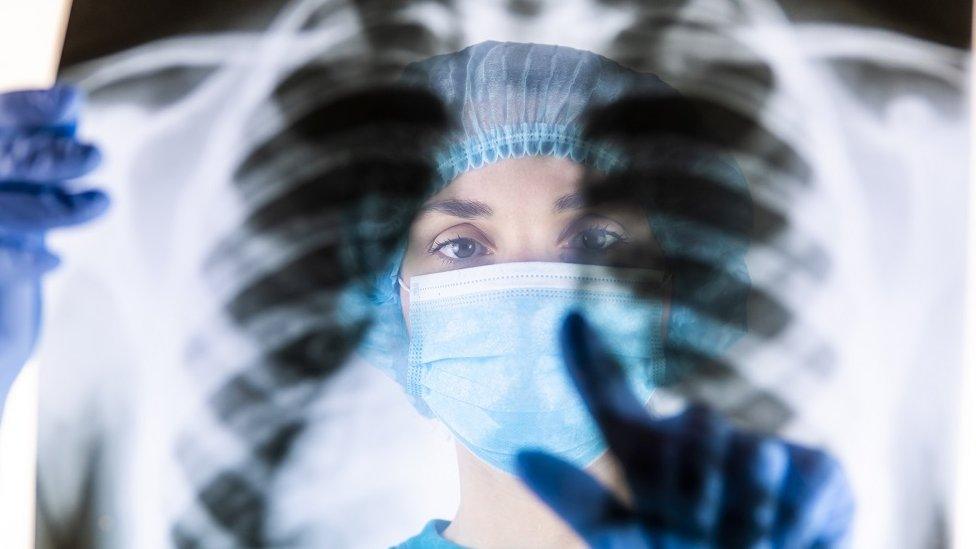
The latest figures from Northern Ireland's cancer waiting lists will be released later
A cancer survivor has called for waiting-time improvements so statistics do not just keep worsening.
The latest cancer waiting time figures in Northern Ireland show continued delays in cancer treatments across the system.
Kathy McAllister, 53, was diagnosed with stage three bowel cancer in 2019.
She says it has become normal to accept the statistics will be worse, but nothing is being done to change them.
"There are lots of people running out of time who can't wait and it's now time for people to say that something has to be done," Ms McAllister told BBC News NI.
"It feels like the figures are like wallpaper - on hearing them we just become numb, and we stop thinking that there are real people behind them."
Ms McAllister said some friends had their diagnoses delayed for so long that the outlook changed from treatable to terminal.
"Things need to be improved for all cancer patients so we just don't keep hearing every quarter that the figures have become worse," Ms McAllister added.
Cancer waiting times released by the Department of Health on Thursday morning show continued delays across the system.
The latest figures showed that in the three months ending September 2023, just 34% of patients starting treatment for cancer did so within the target 62 days of a GP referral, a fall of more than five percentage points on the same period in 2022.
And just over half (52.9%) of those breast cancer patients who received an urgent referral were seen within their 14-day target period, down from 70.2% in the previous quarter and 63.2% in the same period in 2022.
Physical and mental tolls
During her treatment, Ms McAllister undertook chemotherapy, radiotherapy and surgery. She also receives routine scans annually.
However, she said waiting at every stage was almost as bad as going through treatment.
"[There is] waiting to hear your diagnosis, waiting to hear the results, waiting to hear if you are treatable, waiting to have a follow-up appointment," she said.
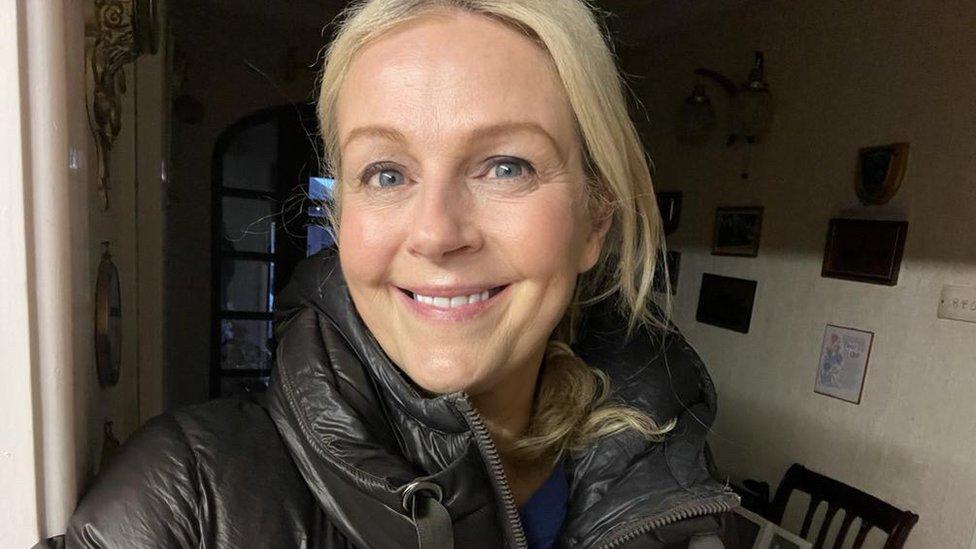
Kathy McAllister received her bowel cancer diagnosis in 2019
Each stage takes its toll mentally and physically, she added, as longer waits can allow the cancer to grow.
"Treatable to terminal is the difference between life and death," Ms McAllister said.
The devolved government at Stormont collapsed almost two years ago after the Democratic Unionist Party (DUP) withdrew in protest against post-Brexit trade arrangements.
In the absence of local government, Ms McAllister called for the formation of an urgent cancer taskforce so departments can come together to make the most of the resources available.
She said that the pandemic proved that the health service can pull together quickly that there was a sense of "urgency" but that same urgency is not being applied to cancer.
Claire's 'incredibly lucky' story
And urgency can make a huge difference in a person's story.
For eight years, Claire Scott experienced frequent pains in her chest which could never be attributed to anything. She brushed them off until 2018, when she experienced sudden bouts of nausea and went to her GP.
Within days, her liver was found to be functioning poorly and she was told to attend Londonderry's Altnagelvin Hospital. A large tumour was discovered and she was diagnosed with pancreatic cancer at the age of 27.
"Two of my grandparents have passed due to pancreatic cancer - that was the only thing I knew about it," she told BBC News NI.
"It was just one of those things where you get it, and as we all know if anyone's had pancreatic cancer, it's very serious and survival rates are low."
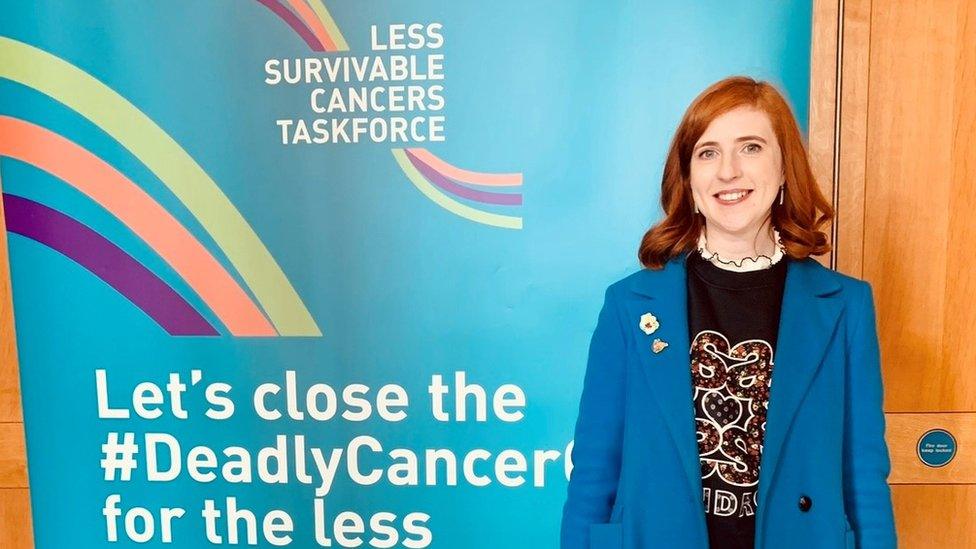
Claire Scott was diagnosed with pancreatic cancer at just 27 years old in 2018
However, Ms Scott remained optimistic and received surgery to remove her pancreas just weeks after her initial diagnosis.
"For me, from when I first presented to A&E to when I had surgery was less than three weeks so incredibly lucky, incredibly different to a lot of people's cases," she added.
"While I had symptoms for years and years, once I got red-flagged I was progressed very quickly through the system and I was able to make a relatively full recovery."
Access to GPs is key
Six years after her diagnosis, Ms Scott takes medication daily to help manage the after-effects of her condition.
She says some cancers are harder to spot than others - part of why they can be less survivable.
"Pancreatic cancer doesn't present itself in symptoms," she said.
"Typically what happens is that it spreads somewhere else and that flags it to people."
Accessing the right diagnostic tools as well as proper access to GPs is also important for catching cancers early before they cause devastating effects, Ms Scott added.
"I find sometimes cancer and these less survivable cancers, it's a bit of a taboo, it's a foregone conclusion, it's around palliative care when that's not actually the case.
"It's maybe shifting the conversation to if we can intervene earlier… that would go a huge way in support people with less survivable cancers."
Related topics
- Published3 August 2023
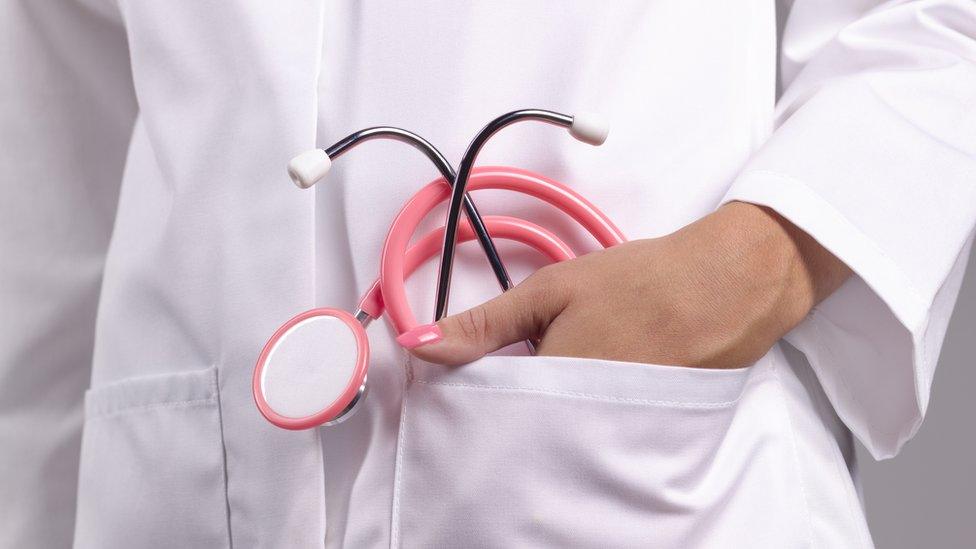
- Published30 March 2023
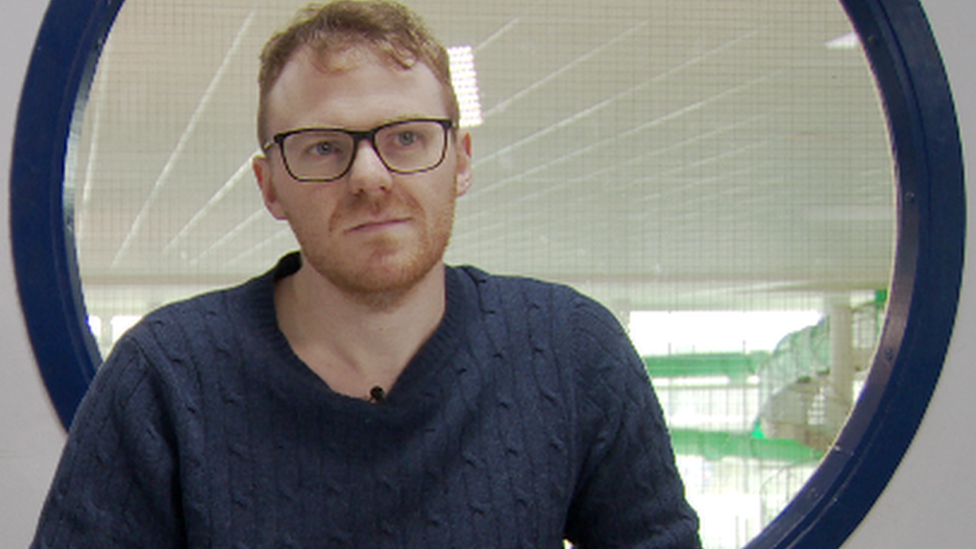
- Published23 February 2023
